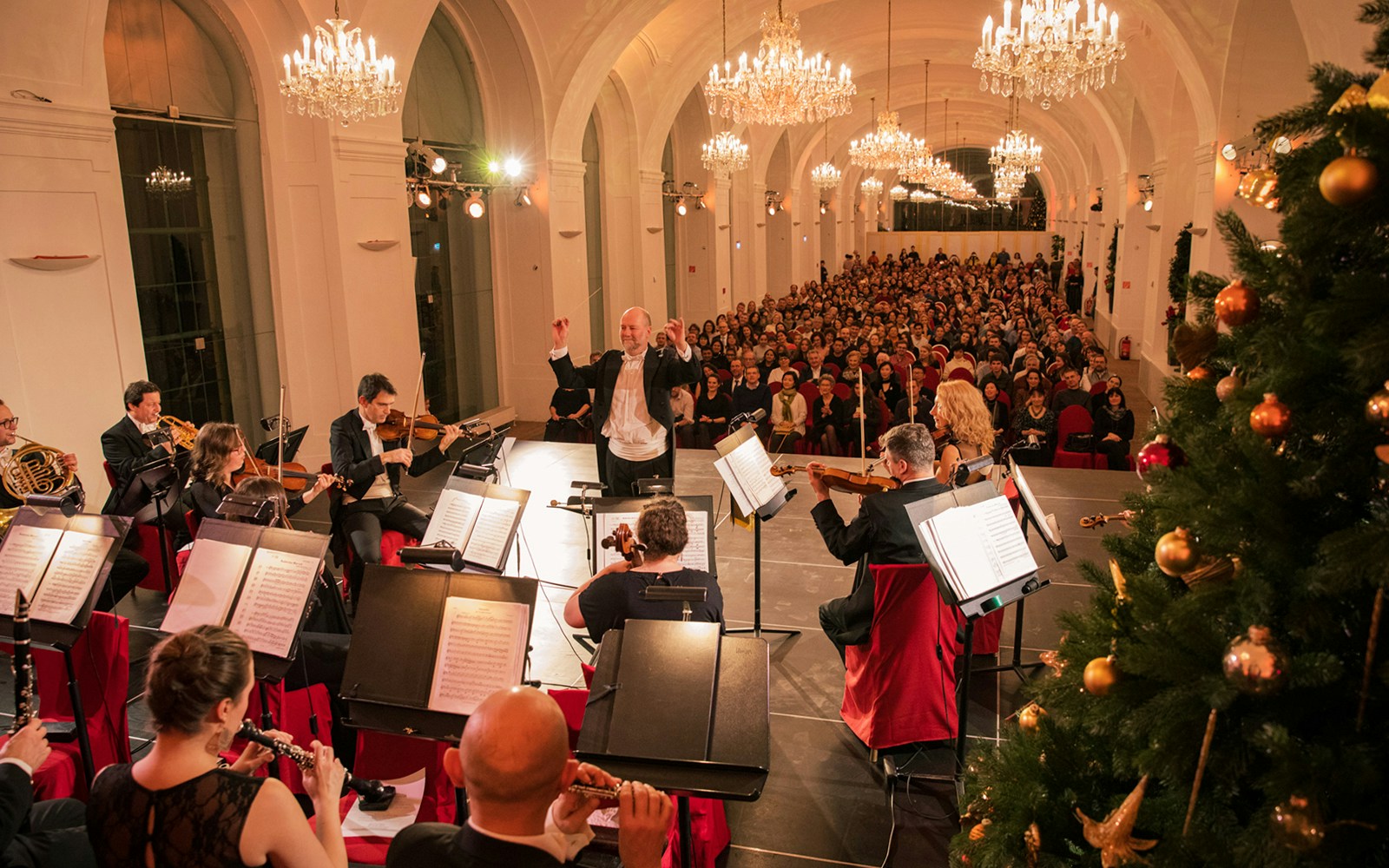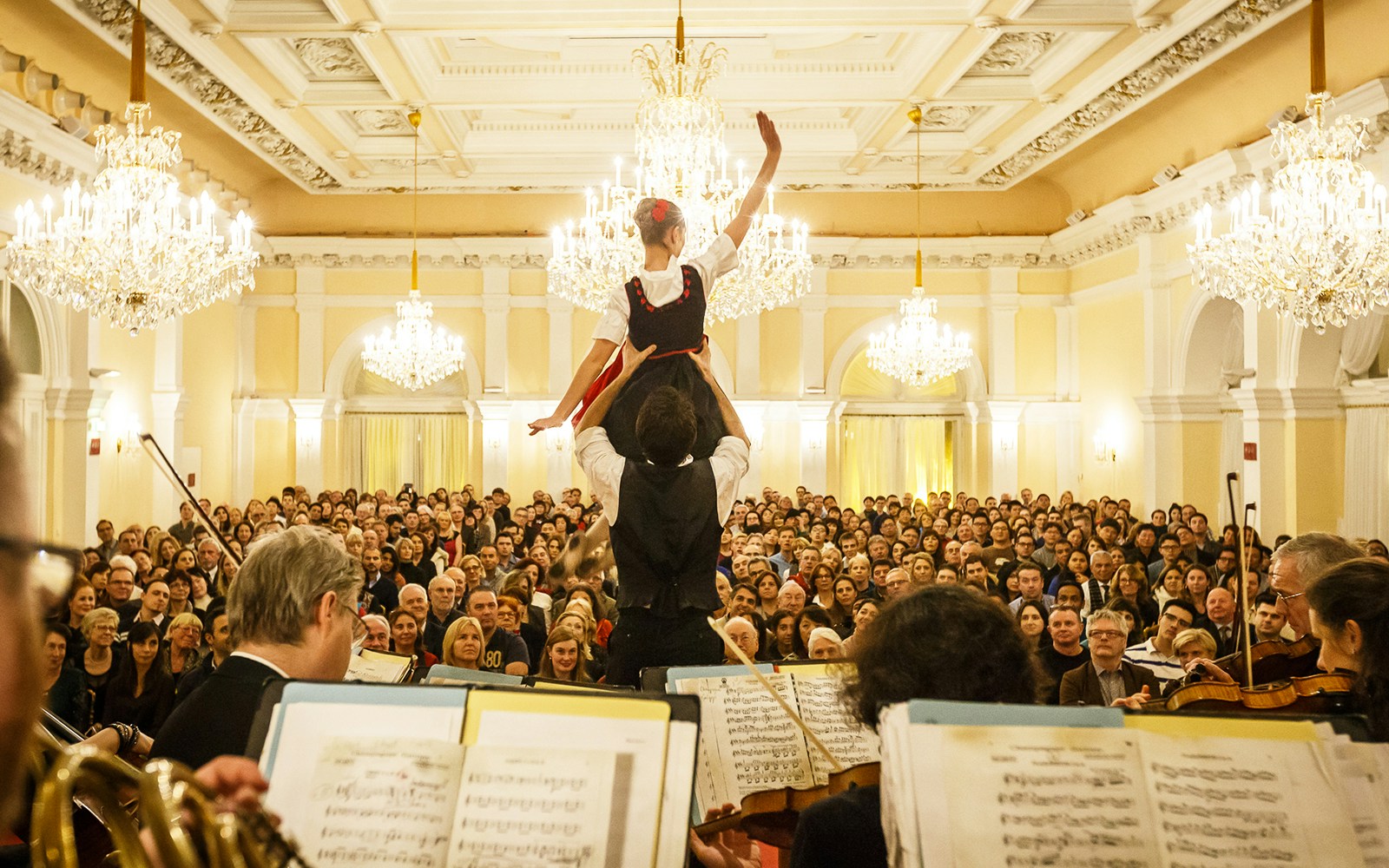The Schönbrunn Palace Orangery, where Mozart himself performed in 1786, hosts daily concerts featuring masterpieces by Mozart and Strauss. The Schönbrunn Palace Orchestra, accompanied by opera singers and ballet dancers, delivers enchanting performances in this historic setting. Guests can enhance their evening with a gourmet dinner before the concert, immersing themselves in Viennese cultural heritage.

Celebrate the King of Waltz: Johann Strauss
From Vienna to the world: The legacy of Johann Strauss
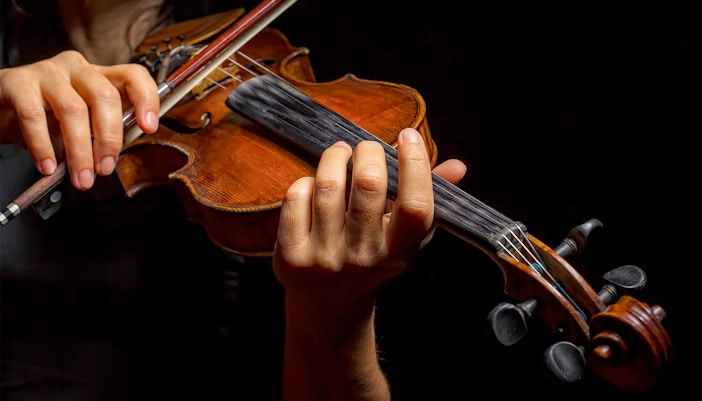
Early life and musical family
- Born on October 25, 1825, in Vienna, Johann Strauss II was the eldest son of Johann Strauss I, a famous composer and conductor.
- Despite his father’s disapproval, Strauss secretly learned the violin and nurtured his passion for music.
- His mother, Anna, supported his ambitions, laying the foundation for his future success.
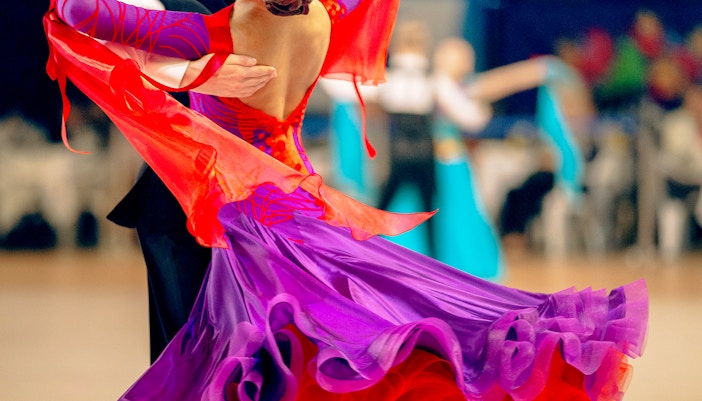
Rise to fame as the ‘Waltz King’
- Strauss formed his orchestra in 1844, quickly gaining popularity with his lively compositions and innovative conducting style.
- His masterpiece, The Blue Danube, became an instant classic and remains a symbol of Vienna.
- By the mid-19th century, he was celebrated internationally, performing across Europe and even in the United States.
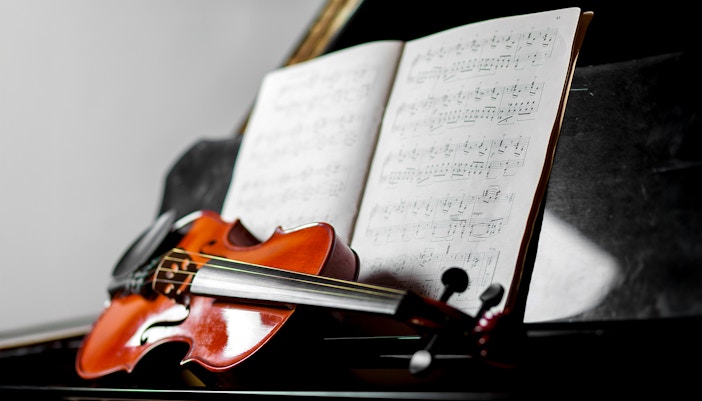
Contributions to Viennese musical culture
- Strauss elevated the waltz from a simple dance tune to an art form that captivated audiences worldwide.
- He composed over 500 works, including waltzes, polkas, and operettas, blending elegance with accessibility.
- His music defined Vienna's golden age, with his melodies embodying the city’s vibrant social and cultural life.
Strauss’s waltzes and operettas | Music for the ages
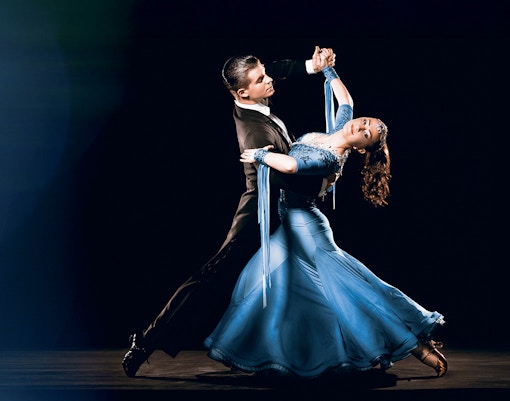
The Blue Danube
Strauss’s most iconic waltz, The Blue Danube, is a masterpiece that celebrates the Danube River’s timeless beauty. Premiered in 1867, it evokes a sense of grandeur and festivity, becoming Vienna’s unofficial anthem and a symbol of Austrian pride.
Mozart & Strauss at Schonbrunn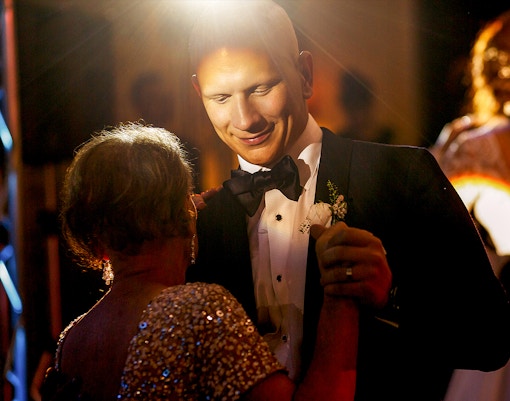
Tales from the Vienna Woods
This evocative waltz blends rustic folk melodies with Strauss’s signature sophistication, vividly capturing the charm of Vienna’s tranquil woodlands. It’s a quintessential piece that reflects the serene yet festive Viennese spirit.
Mozart & Strauss at Kursalon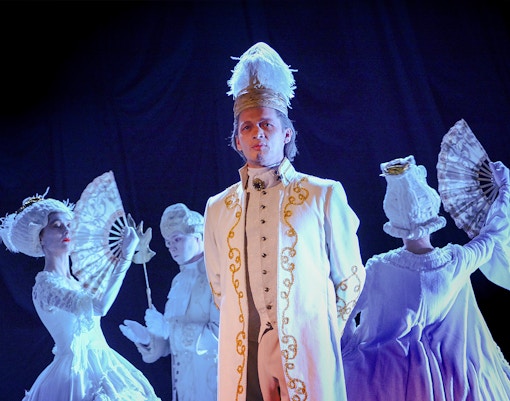
Operettas
Strauss’s operettas, like Die Fledermaus and The Gypsy Baron, artfully blend humor, romance, and social satire with captivating music. These works established him as a pioneer of light opera, entertaining audiences for generations.
Schonbrunn Palace after-hours concerts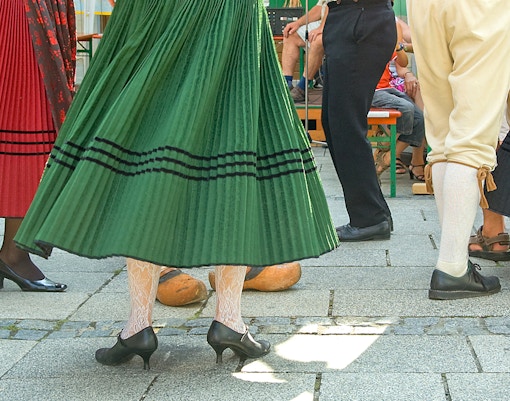
Polkas and marches
Though Radetzky March by Johann Strauss I is often performed at his concerts, Johann II’s vibrant polkas, such as Pizzicato Polka, add sparkle and liveliness, showcasing his versatility beyond waltzes.
Mozart & Strauss dinner concert at SchonbrunnLesser-known facts about Strauss
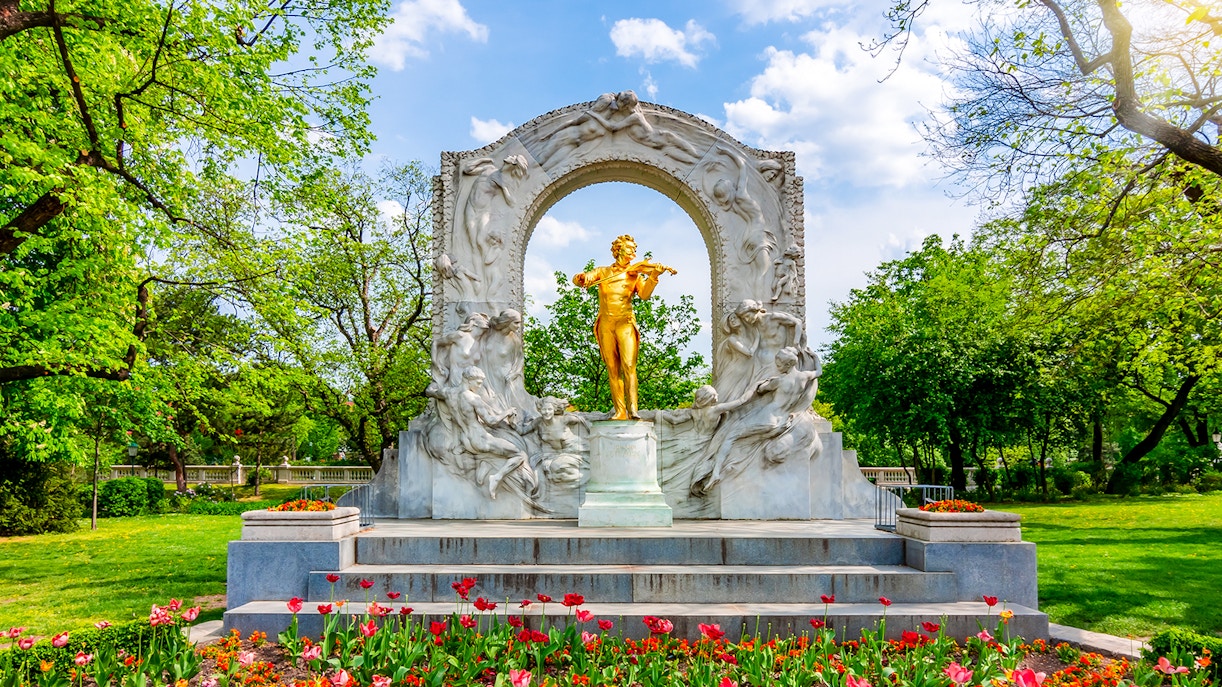
- Strauss composed over 500 works, including 150 waltzes, 16 operettas, and numerous polkas, quadrilles, and marches, solidifying his status as one of Vienna’s most influential composers.
- Strauss’s rise to fame was fueled by a rivalry with his father, Johann Strauss I, who initially disapproved of his musical aspirations but later saw his son surpass him in popularity.
- Originally a choral piece written for a Viennese singing society, The Blue Danube gained worldwide acclaim when Strauss arranged it as a purely instrumental waltz.
- Strauss toured extensively, performing across Europe and America. In Boston, he conducted an orchestra of 1,000 musicians, cementing his reputation as a global musical icon.
- Strauss’s operettas, like Die Fledermaus, often featured playful humor and social satire, reflecting Viennese wit and charm while captivating audiences with their lively music and storytelling.
Where to hear Strauss’s music in Vienna?
Schönbrunn Palace
Visiting Strauss’ Vienna
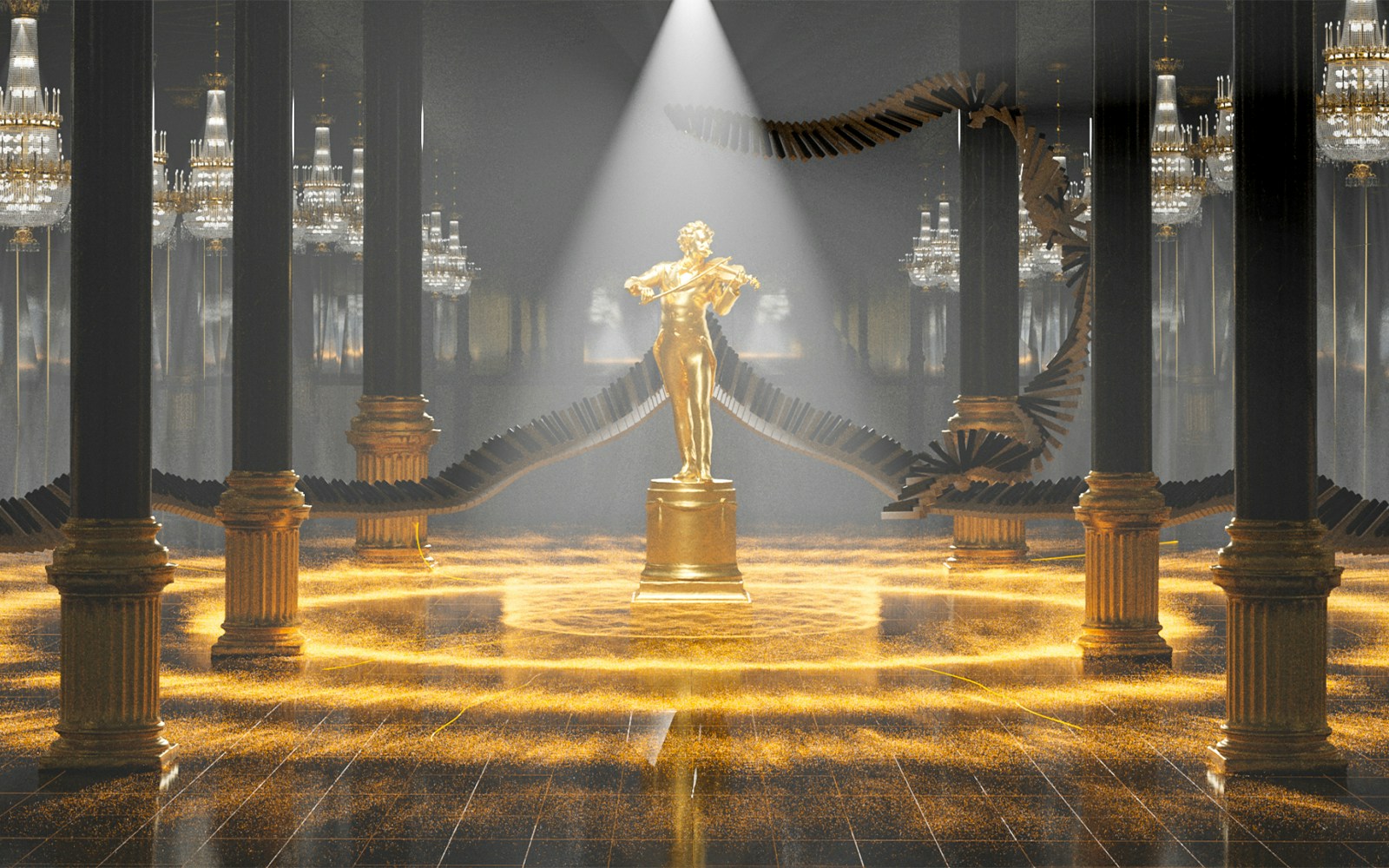
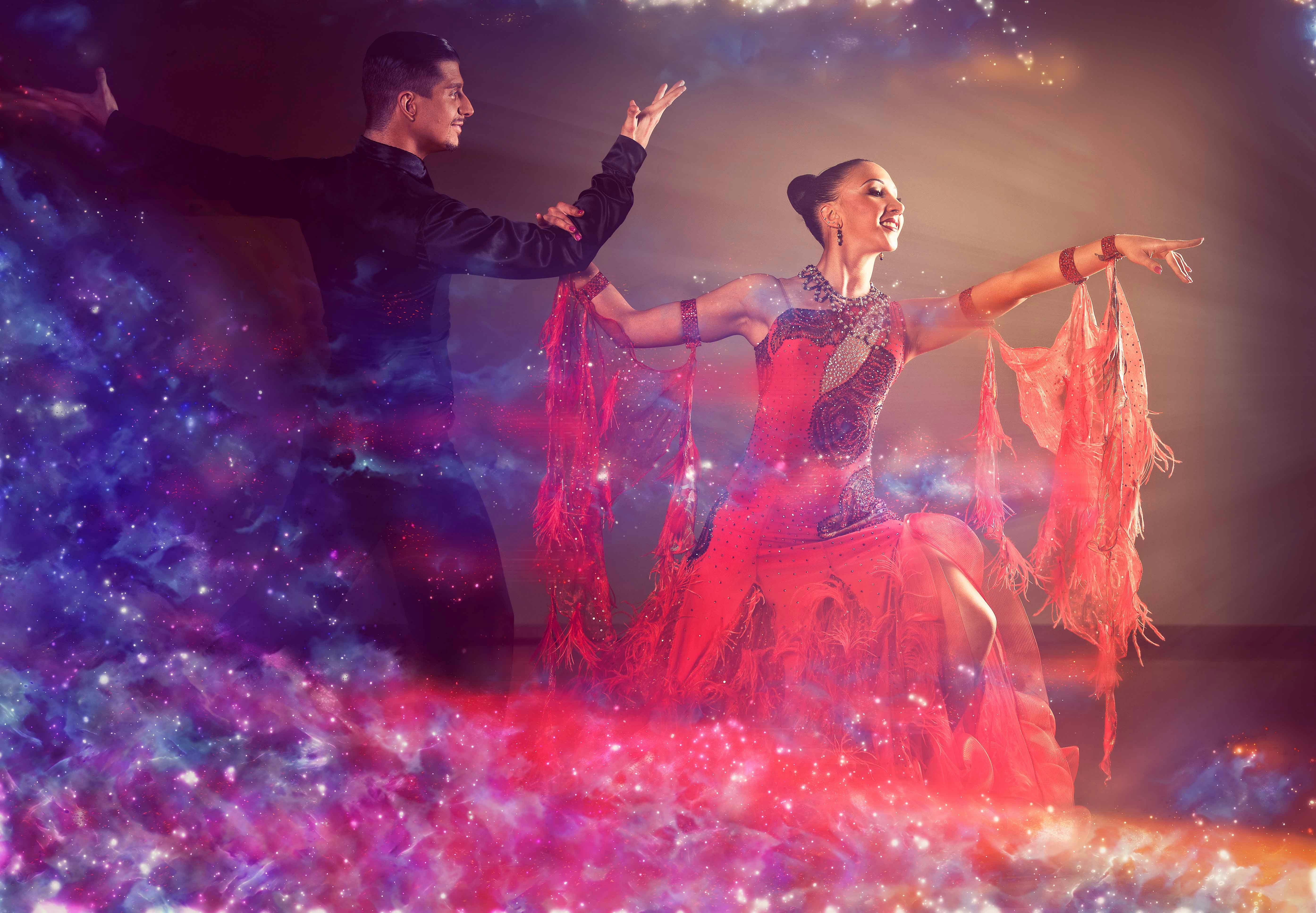
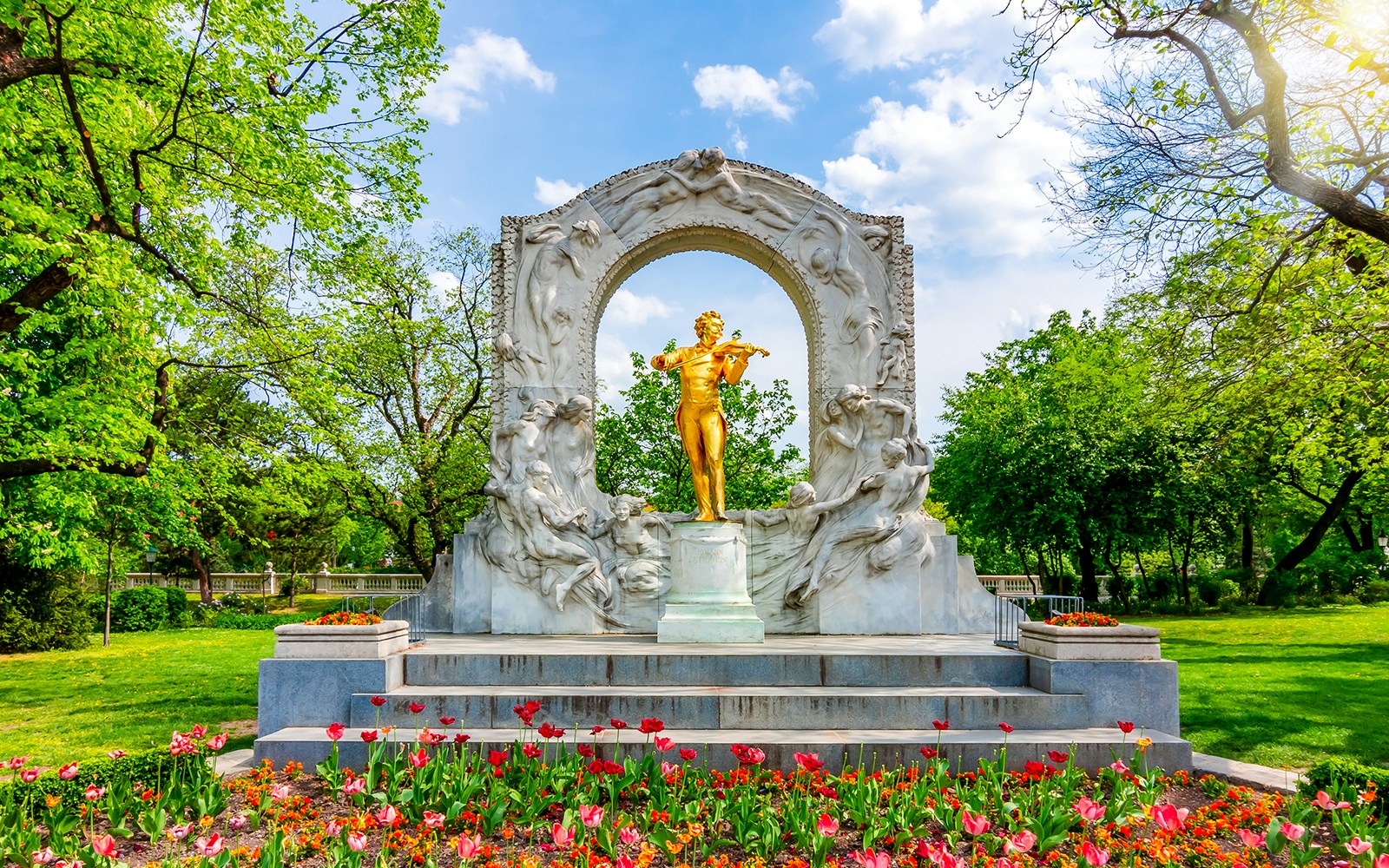
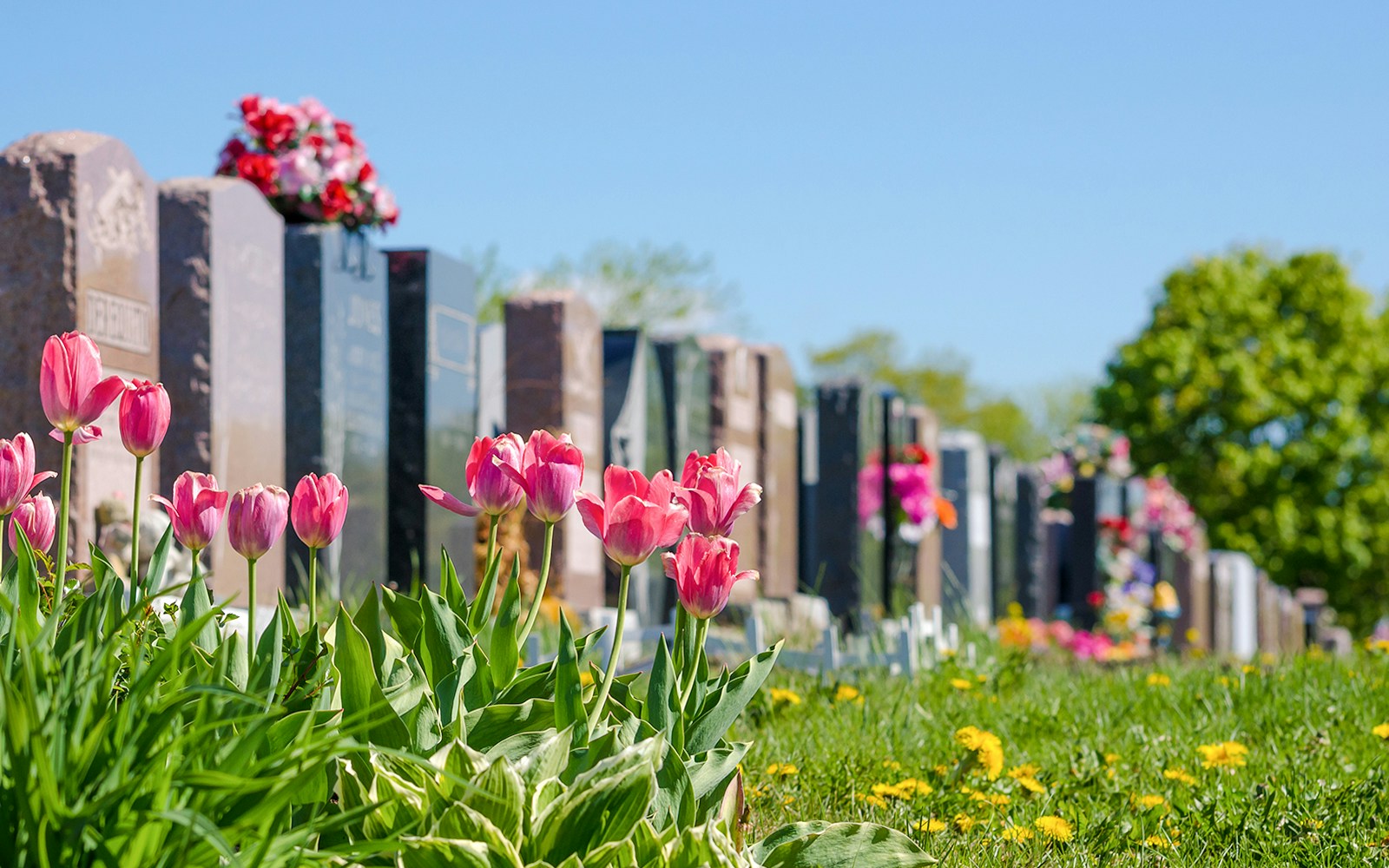
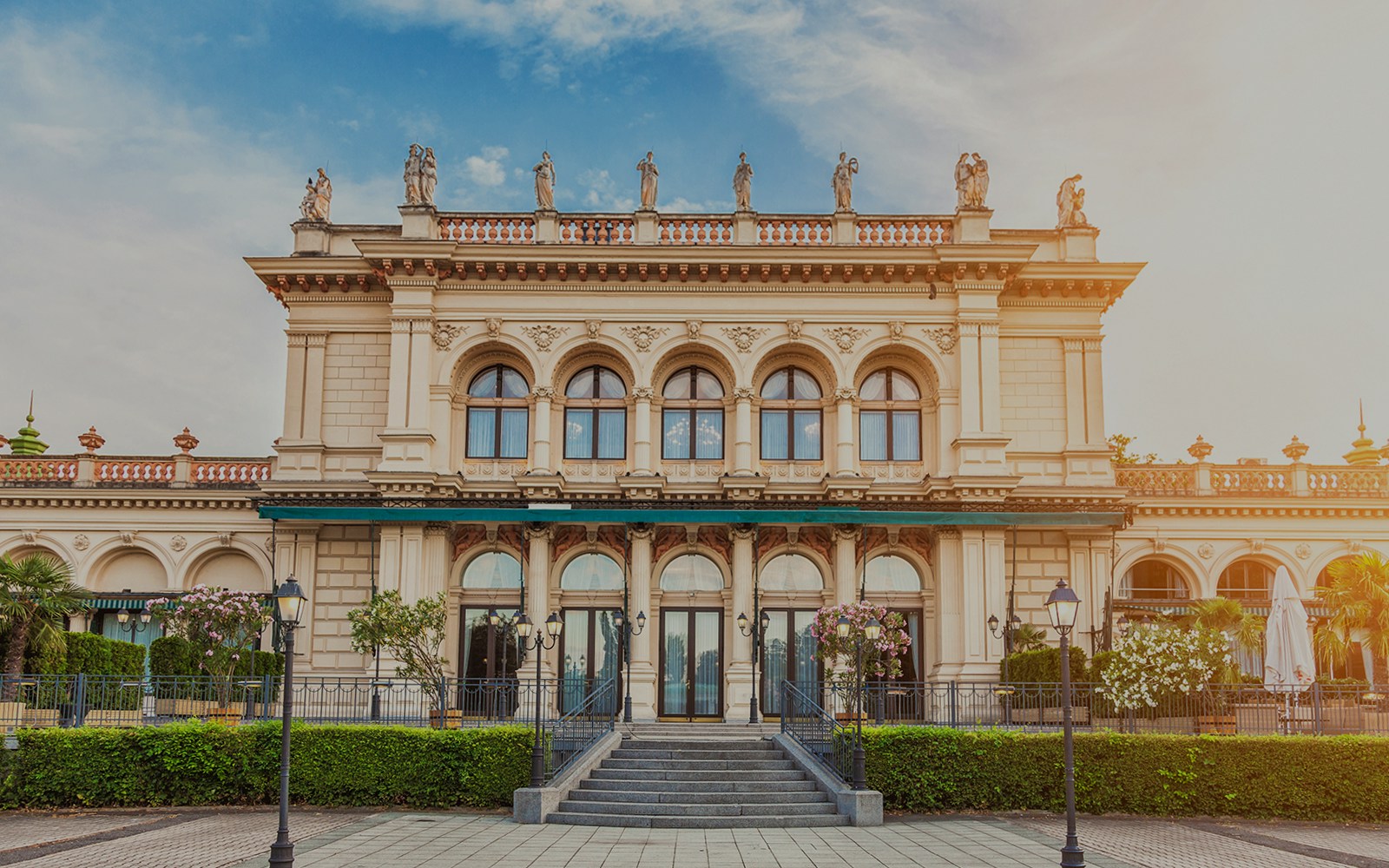
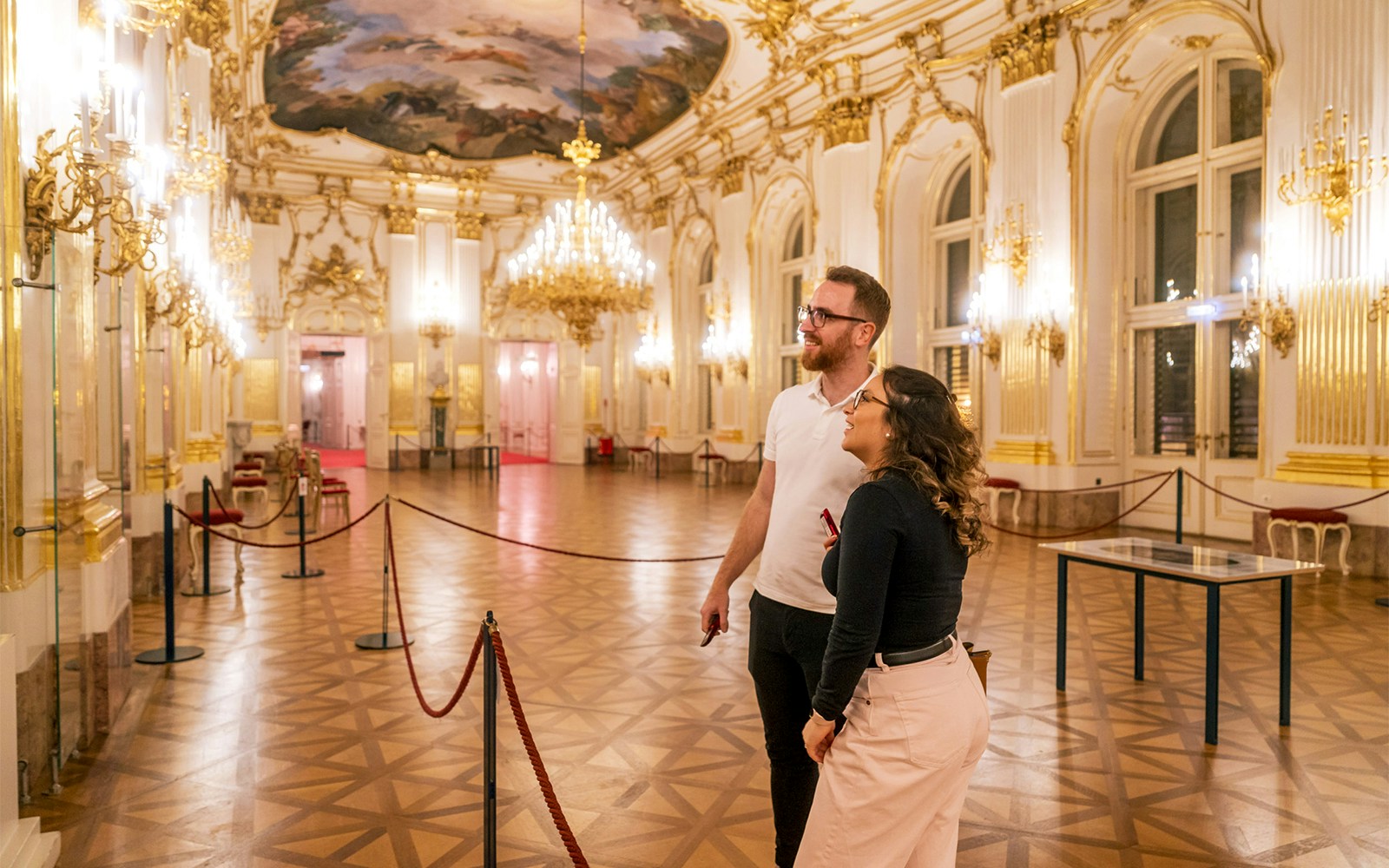
Other classical concerts you might love
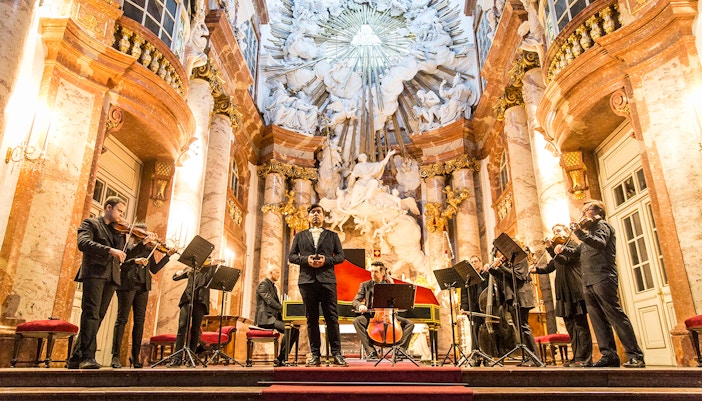
Vivaldi concerts
Experience the baroque brilliance of Antonio Vivaldi at Karlskirche, one of Vienna's most stunning architectural masterpieces. Renowned for performances of The Four Seasons, the concerts bring Vivaldi’s music to life with skilled musicians and the church's unparalleled acoustics. Set against the backdrop of Karlskirche’s grand dome, this event offers an immersive journey into Vienna’s classical heritage.
Vivaldi's life & legacy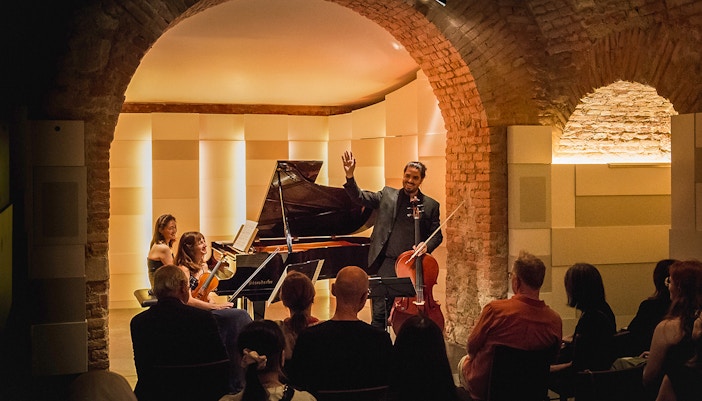
Mozart concerts
Celebrate the genius of Wolfgang Amadeus Mozart at venues like the Musikverein and Schönbrunn Palace. Often paired with Strauss’s waltzes, these concerts feature iconic works such as Eine Kleine Nachtmusik and The Marriage of Figaro. Some events include authentic period costumes and candlelit settings, adding a touch of historic charm. These performances perfectly complement Strauss’s repertoire, offering a well-rounded Viennese classical music experience.
Mozart's life & compositions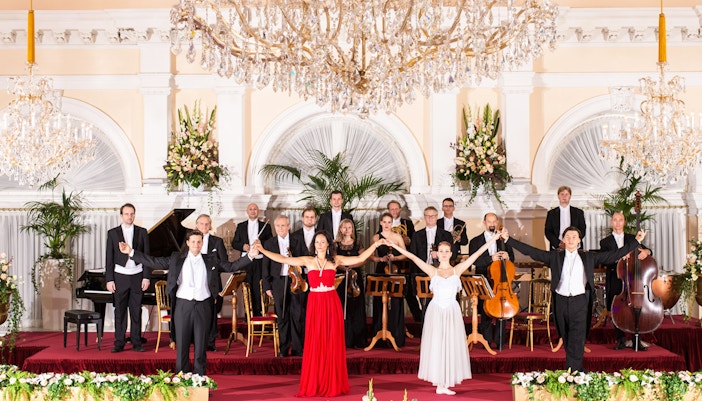
Strauss and Mozart ensemble concerts
Relive Vienna’s golden age of music through concerts that unite Strauss and Mozart’s masterpieces. Performed by ensembles like the Salonorchester Alt Wien, these events offer an intimate blend of Strauss’s waltzes and Mozart’s operatic arias, accompanied by ballet dancers and opera singers. Venues like the Kursalon Hübner amplify the elegance, ensuring an unforgettable cultural evening.
Schonbrunn Palace Christmas concerts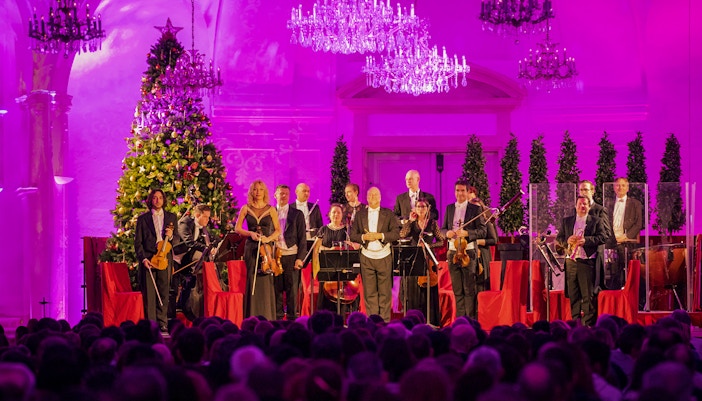
Schönbrunn Palace classical concerts
Beyond Strauss and Mozart, Schönbrunn Palace offers an extensive lineup of classical concerts. With performances by the Schönbrunn Palace Orchestra, guests can enjoy a mix of symphonies, operatic excerpts, and timeless waltzes. The combination of grand surroundings and a meticulously curated program delivers an unmatched Viennese music experience.
Schonbrunn Palace after-hours concerts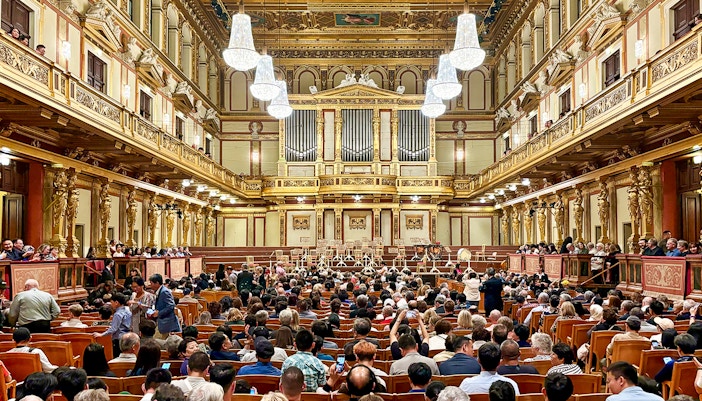
Musikverein’s Symphony performances
For those seeking a broader classical repertoire, the Musikverein showcases world-class symphonies by composers like Beethoven, Brahms, and Haydn. Known for its exceptional acoustics, the venue hosts the Vienna Philharmonic Orchestra and other renowned ensembles, making it a must-visit for lovers of orchestral music.
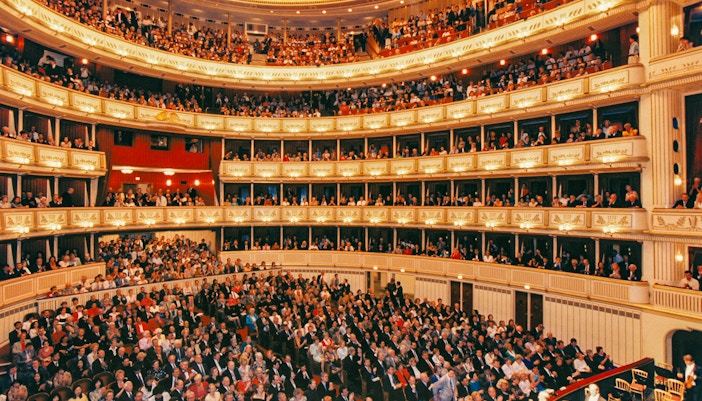
Vienna State Opera performances
Extend your classical journey with operatic masterpieces at the Vienna State Opera. Home to world-class productions, the opera’s lineup includes Strauss, Mozart, and beyond, offering an exquisite blend of orchestration, vocal artistry, and dramatic storytelling. This venue is a cornerstone of Vienna’s cultural life.
Frequently asked questions about Strauss and Vienna concerts
You can purchase your Vienna concert tickets online. It’s best to book your tickets in advance to secure good seats and ensure you have the best experience.
Iconic venues like Schönbrunn Palace, Kursalon Hübner, and the Musikverein host Strauss concerts. Each offers a unique ambiance, from royal grandeur to historic elegance, ensuring a memorable Viennese music experience.
Yes, venues like Schönbrunn Palace and Kursalon Hübner offer dinner-and-concert packages. These combine exquisite dining experiences with performances of Strauss’s masterpieces, creating an unforgettable evening of Viennese culture.
Strauss concerts are held year-round, but the festive season, especially around New Year’s Eve, offers a magical experience. Many venues host special holiday concerts, perfect for enjoying Strauss’s timeless music.
Strauss concerts usually last 1.5 to 2 hours, including an intermission. This allows ample time to enjoy the performance and explore the venue's surroundings.
Yes, Strauss concerts are family-friendly and a great way to introduce children to classical music. Shorter performances with ballet elements are particularly engaging for younger audiences.
Smart casual attire is appropriate for most Strauss concerts. For premium venues like the Musikverein, consider formal evening wear for a touch of elegance.
Most venues, including Kursalon and Schönbrunn Palace, are wheelchair accessible and offer facilities like ramps and elevators. It’s advisable to check accessibility details when booking tickets for specific requirements.
Photography policies vary by venue. Most concerts discourage photography during performances to maintain the atmosphere but often allow it before or after the show. Check specific venue rules in advance.
